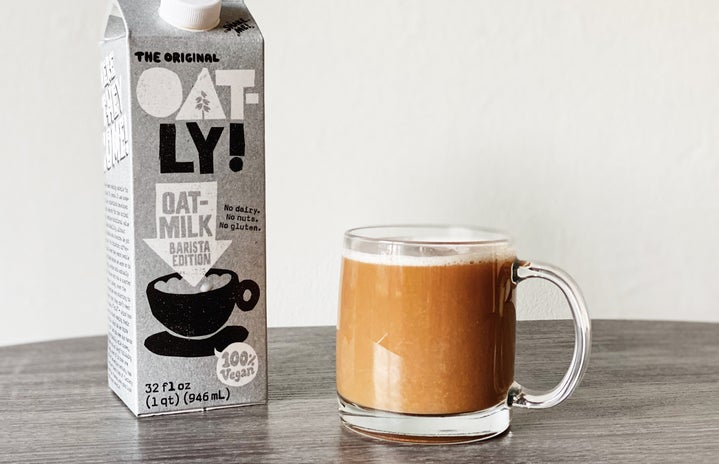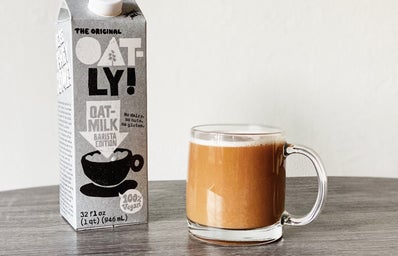Plant-based milk is the way of the future! The market for non-dairy milk grew 23% between 2016 and 2019. Funky new types of milk seem to appear every time you walk through the refrigerator section of the grocery store.
This trend is here to stay as more people recognize and accept their own lactose intolerance. Many are also acknowledging that the dairy industry isn’t the best. The production of dairy milk creates three times more greenhouse gases than alternatives!
Not all non-dairy kinds of milk are created equal, though. Almond and rice milk require the most water—130 pints are needed to produce one glass of almond milk. Both of these kinds of milk lack protein (and other nutritional benefits) in comparison to options like soy milk.
The technology is improving to create “milks” that are nutritionally dense, taste good and are lighter on the environment. You can make milk out of just about anything, like oats and cashews! Here are a few non-dairy ideas that I think could be the next big thing.
- Pumpkin Seed Milk
-
Seeds like flax and hemp can be grown as “niche crops” with a lower environmental impact. The seed milks shouldn’t end with those two, though. It’s time for pumpkin seed milk to enter the market!
Also known as pepitas, they provide a nutty flavor while being jam-packed with benefits. Pumpkin seeds are one the best sources of magnesium while also containing iron, copper, zinc and antioxidants.
Lastly, imagine having a pumpkin spice latte with this milk. If Starbucks is listening, this could be an opportunity to make bank next fall!
- Peanut Milk
-
We already have almond, cashew and other nut-based milk. The name “peanut milk” is a little weird, but besides that, it seems like a no-brainer to commercialize and market this option. While it has failed on the shelves before, a little rebranding campaign could do wonders!
You’ve probably noticed the price difference between peanuts and other nuts. Peanuts provide the same heart health and longevity benefits despite their lower cost. You have to take out a small loan to purchase a jar of almond butter! Peanut milk is an affordable choice that is still jam-packed with nutritional value. It is also a safe option for those with tree nut and soy allergies.
Of course, peanuts are actually a legume like soybeans and lentils. Soy milk production is more environmentally friendly than true nut milk—it emits fewer greenhouse gases and uses less water. Peanut milk could likely be created in a similar manner.
- Chickpea Milk
-
This might be my strangest milk suggestion, but hear me out. Chickpeas are well-known for their role in hummus, but they don’t have to be consumed in a savory, garlicky form. If you’ve ever made cookie dough hummus, you know that chickpeas are versatile! Adding a little sweetener completely changes their flavor profile.
These legumes are a great source of plant-based protein, fiber and iron. They could be processed into milk similarly to peanuts and soybeans, which is less environmentally damaging.
Aquafaba is the liquid typically discarded from a can of chickpeas. Aquafaba can be whipped up like whipped cream, so chickpea milk could be a game-changer in lattes! Would this choice be more attractive if called “garbanzo milk” instead?
I’m no business major—I’m not about to kickstart the next big non-dairy milk company. If you are inspired by my ideas, I’d love to taste-test your prototype. The future of milk is looking bright, beautiful and plant-based!



